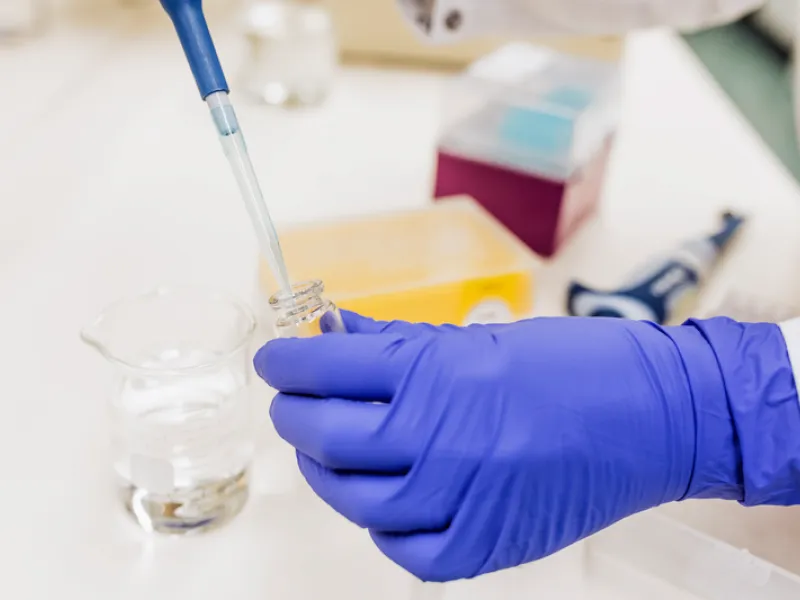Research project for more stable mRNA medicines
18 May 2022, 08:40

Currently, mRNA medicines, such as vaccines, require freezers that can maintain −80 °C for large-scale handling and distribution. A new project has now started, with an aim to develop production processes for manufacturing mRNA medicines that remain stable even at 4 °C or higher. - The goal is to develop a dry vaccine, which would open up completely new opportunities for handling and distribution, says Randi Nordström, a researcher in formulation development at RISE.
The new project NucleoDry is working to build up a new infrastructure for vaccine development to contribute to creating generic solutions for development of stable mRNA vaccines and pharmaceuticals. The processes are based on freeze-drying technology that enables manufacturing for human use. The project is run by RISE together with Karolinska Institutet, the production unit Vecura at Karolinska University Hospital, and the Swedish innovation and manufacturing company NorthX Biologics.
RNA, or ribonucleic acid, is in all our cells, and different ribonucleic acids have different purposes. Messenger RNA (mRNA) serves as a messenger between the cells. The cells use the code in mRNA to produce the proteins that the body needs.
- mRNA technology like vaccines or treatments have incredible potential. We are now just at the cusp of understanding its full potential. A central aspect of how much mRNA will eventually be utilised is storage stability, so that vaccines and treatments can be easily distributed globally, says Matti Sällberg, professor at Karolinska Institutet.
NucleoDry brings together expertise spanning the entire care chain from mRNA production via formulation development to scaling of manufacturing processes for large-scale pharmaceutical production.
- Manufacturing mRNA at laboratory scale and freeze-drying biological medicines are common today. On the other hand, freeze-drying mRNA medicines while maintaining functionality places new demands on processes and is a field in its infancy. These processes need to be developed in a way that makes them scalable, safe and appropriate for large-scale manufacturing for clinical use, says Ola Tuvesson, Head of Process Development at NorthX Biologics.
Good Manufacturing Practice (GMP) describes how the pharmaceutical industry produces medicines so that the patient can be certain they have received the right product and that it is of high quality. The NucleoDry project includes delivering a plan for small-scale GMP production and a plan for large-scale GMP production of mRNA medicines. These plans will describe needs and requirements. Combined with the practical and scientific knowledge that the project will developed, NucleoDry will contribute to developing stable gene-based medicines in Sweden, for the benefit of the industry, the health and medical care system, and society.
- In addition to the research and product development questions that NucleoDry will address, we are also building a national infrastructure for mRNA vaccine development that will benefit the Swedish life science industry in developing future pharmaceuticals. With this project, we want to help bridge the gap between research and clinical studies. This, in turn, will increase Sweden’s competitiveness internationally within development and manufacture of gene-based pharmaceuticals, says Randi Nordström, RISE.
Press contact:
Randi Nordström, Researcher RISE
+46 10 516 60 15, randi.nordstrom@ri.se

